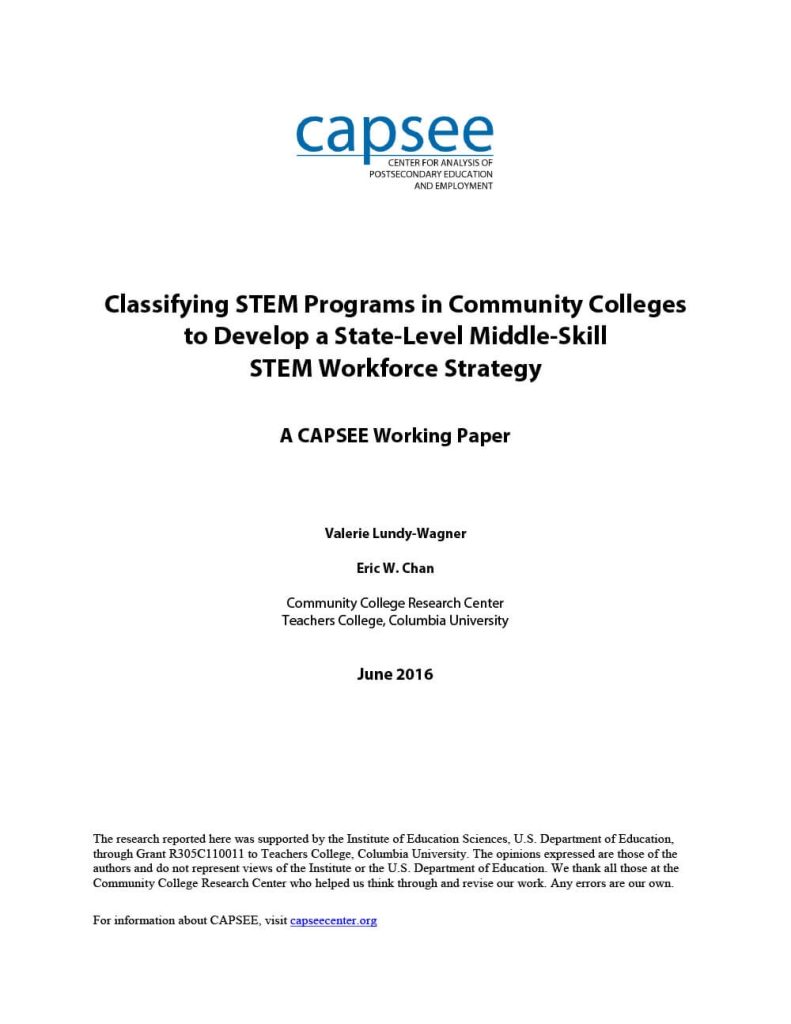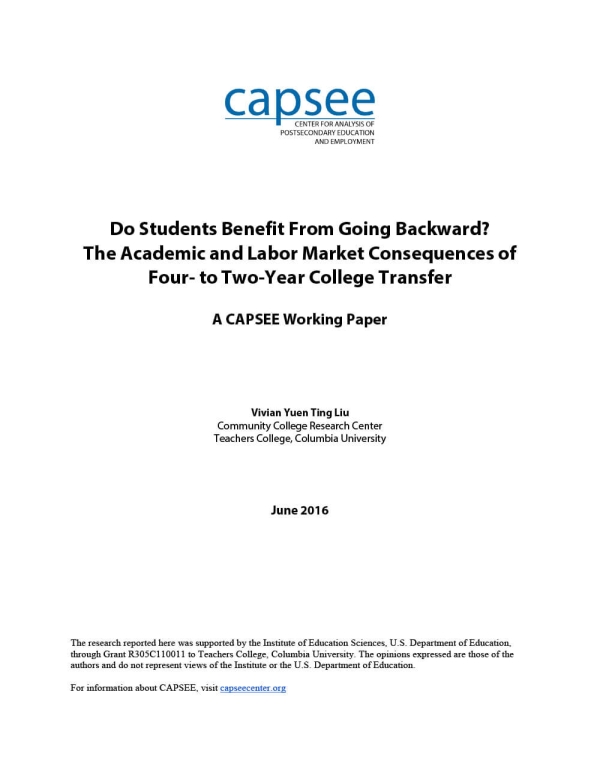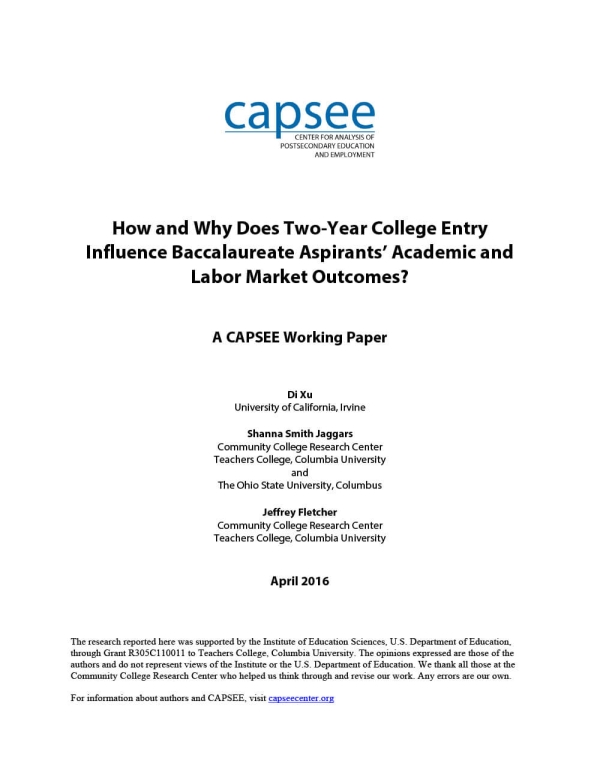Classifying STEM Programs in Community Colleges to Develop a State-Level Middle-Skill STEM Workforce Strategy

This CAPSEE working paper provides a classification scheme for sub-baccalaureate STEM programs and, using data from Virginia, analyzes short-term earnings returns to community college STEM credentials.
Guided Pathways to Careers: Four Dimensions of Structure in Community College Career-Technical Programs
This study documents the specific ways that community college career-technical programs are structured to support student success, and it provides a framework for examining structure to inform practice and guide future research efforts.
Does Developmental Education Improve Labor Market Outcomes? Evidence From Two States

Using longitudinal student-unit record data linked to wage record data, this paper estimates the labor market returns to developmental credits versus college-level credits in two states.
Do Students Benefit From Going Backward? The Academic and Labor Market Consequences of Four- to Two-Year College Transfer

This CAPSEE working paper examines the effects of four-year to two-year college transfer on “struggling” students, or those who earned less than a 3.0 grade point average in the first term.
How and Why Does Two-Year College Entry Influence Baccalaureate Aspirants’ Academic and Labor Market Outcomes?

Using detailed administrative data from Virginia, this CAPSEE working paper examines how and why the community college pathway to a baccalaureate influences students’ degree attainment and short-term labor market performance.
